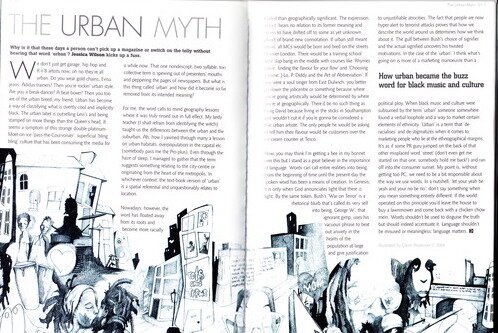The urban myth
Back in the Days, Jamel Shabazz
The term ‘urban’ has seeped into the spheres of fashion and music, classifying what is overtly cool and implicitly black. Since the turn of the millennium, the urban label has been stamped almost as many items than the Queen’s head. This one nondescript, collectivising term continues to pepper the pages of magazines and spill indifferently from presenters’ mouths.
The word calls to mind geography lessons where, even through the haze of sleep, I grasped 'urban’ relates to a city-centre. The word is now more racially-loaded rather than geographically-significant.
If urban still meant urban, all grime artists would be born and bred on the streets of inner-London. Likewise, heralding from Southampton, Craig David’s career would’ve been an impossibility: the only people he would be asking to tell him their flavour would be customers over the ice-cream counter at Tesco’s.
When black music and culture were subsumed by the term ‘urban’, a verbal loophole was discovered; a way to market selected aspects of ethnicity via a term which de-racialises, much like the abbreviation, 'MOBO’. As the late Stuart Hall asserted:
“Reality exists outside language, but it is constantly mediated by and through language…”
Language is a tool in creation, capable of calling into being new modes of thought and thus realities. Language can empower or destabilize, colonize and repress. We only need to look at the connotations of the word 'black’ or the colloquial synonyms of 'vagina’ to understand the gender and racial emasculation that is catalyzed by our use of language.
We must be transparent with our words. Language should not be misused. Language matters. JW

